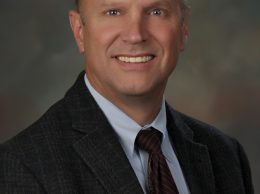Ventura County’s Ebola response detailed at health summit
IN THIS ARTICLE
- Health Care & Life Science Topic
- Henry Dubroff Author
By Henry Dubroff Monday, October 20th, 2014
Area hospitals are getting nearly daily updates from the Centers for Disease Control as efforts to contain the Ebola virus in the United States kick into high gear.
That was the message from Community Memorial Health System CEO Gary Wilde at an Oct. 17 panel on the future of health care in Ventura County.
Wilde told about 300 business and community leaders that CMH was getting communications “daily and sometimes overnight from the CDC” as it refined procedures for dealing with Ebola victims.
The well-publicized infection of two nurses who treated Thomas Eric Duncan, who died from the disease in a Texas hospital, has been a wake-up call. Wilde said CMH has conducted several drills in anticipation of possibly treating an Ebola victim. The hospital used the drills to improve procedures and in one case identified more precisely which room would be best for treating a potential victim, according to Wilde.
He said the hospital had treated one patient for a possible Ebola infection. The patient, who had been transferred from another clinic, had been in West Africa but tested negative for Ebola he said.
Wilde and five other health care and insurance experts participated in the 44th-annual Business Outlook Conference put on by the Ventura County Economic Development Association.
At the conference, keynote speaker Dr. Harlan Levine, CEO of the City of Hope Medical Foundation, said the Affordable Care Act has shown promise in reducing health care costs, particularly through consolidations that have made the system more efficient.
But he said one consequence is a narrowing of options for patients who have rare but deadly diseases. “Networks are narrowing to exclude high-cost centers,” he said. One solution to the problem is the creation of “new, risk-sharing partnerships” where health plans and care providers team up to manage more complex treatments.
The good about the Affordable Care Act is more accountability, more access and better coordination as well as the trend of price increases moderating,” he said. “The bad is that deductibles are higher, networks are narrower and products are more restrictive.”
A key test, he said will be whether consolidation will lead to price increases down the road as competition for services wanes. Also, he said it is fair to ask if the focus on cost control will kill off innovation, an area where U.S. medicine has been a world leader.
Participating on the panel were Peter Sepsis of Kaiser Permanente; Leanne Seeger of HUB International Insurance Services; Greg Van Ness, CEO of Tolman & Wiker Insurance Services; Wilde; Chris Champlin, Chief Strategy Officer, Dignity Health of Central Coast area; and Rigoberto Vargas of the Ventura County Health Care agency.
The program was held at the Ventura County Office of Education conference center in Camarillo.
Note: Business Times’ Henry Dubroff is a member of the VCEDA board and moderated the panel discussion.











